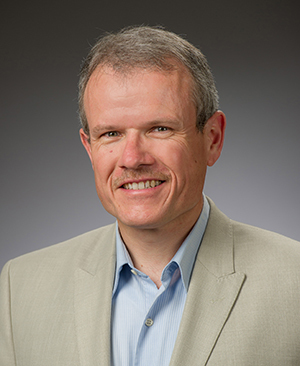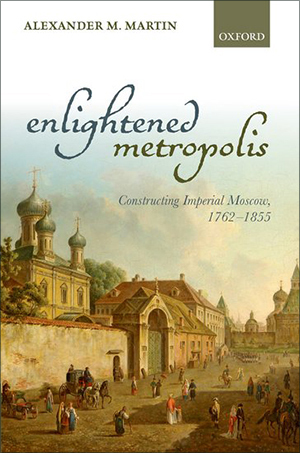History Professor and Fellow of the Medieval Institute Wins Urban History Association Book Award
 Alexander Martin
Alexander Martin
Alexander Martin, a Notre Dame professor of history and fellow of the Medieval Institute, has won the Urban History Association’s Best Book Award for a work of non-North American urban history published in 2013-14.
His book, Enlightened Metropolis: Constructing Imperial Moscow, 1762–1855; also won the 2013 Marc Raeff Book Prize awarded by the Eighteenth-Century Russian Studies Association to the best book in any discipline or language on the history and culture of Russia during that time period.
Martin’s work “addresses a significant gap in Russian, European, and urban historiography,” the Urban History Association said, that had not been explored in English-language scholarly literature.
“Martin’s (book) is thus a well-rounded history of Moscow as an idea, a built environment, and a lived community,” the association said in its fall newsletter.
Two Stereotyped Cities

Enlightened Metropolis challenges the myth that Imperial Russia’s two capital cities, St. Petersburg and Moscow, had fundamentally different identities.
“The standard stereotype is that St. Petersburg was Russia’s window to Europe, whereas Moscow preserved the nation’s traditions,” Martin said. “I make the argument that this is not true. The tsarist regime worked to make Moscow a modern European city, with new buildings, a police force, and an improved infrastructure.”
In Enlightened Metropolis, Martin reveals that tsarist Moscow was also developing a middle class, “more than we sometimes think.”
The idea of 19th-century Moscow as a backward, un-European, and quintessentially “Russian” city needs to be revised, he said, noting that the city had actually kept up with Europe until the early 1800s.
But after Napoleon’s 1812 invasion of Russia and “disastrous” occupation of Moscow, Martin said, Russia failed to keep pace with the Industrial Revolution.
Rebels and Revolution
Martin said research he conducted for his previous book, Romantics, Reformers, Reactionaries: Russian Conservative Thought and Politics in the Reign of Alexander I, helped spark the idea for Enlightened Metropolis.
He read a number of memoirs, which he said offered fascinating glimpses into life in Moscow in the 18th and 19th centuries.
Another inspiration for Enlightened Metropolis, Martin noted, was the ongoing discussion of American cities in the media and popular culture—from stories of declining cities in the 1970s and ’80s to a renaissance of sorts from the 1990s forward.
“I thought it would be really interesting to look at how cities develop as a historical phenomenon.”
While Enlightened Metropolis is being translated for publication in Russia, Martin is turning his attention to rebels and revolution. This fall, he is teaching a seminar on rebels in tsarist Russia, as well as a course called Europe in the Age of Revolution and Nationalism: 1789–1871, which examines the political, social, and cultural transformations that gave rise to modern Europe.
Originally published by at al.nd.edu on February 03, 2016.
Modified by Brandon Cook on February 20, 2017.